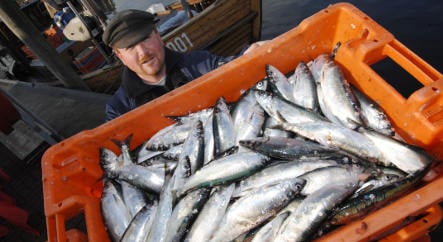The fishing base in Freest, on the Peenestrom straight off the Baltic Sea, is one of Germany’s largest, and in 2009’s booming herring season, 28 fishing crews have already brought in 2,250 tonnes of herring, according to head of the region’s fishermen’s cooperative Michael Schütt. That means this year’s quota – reduced by 39 percent – is almost fished out.
“Normally we fish until about the tenth of May,” Schütt said.
The premature end to the season is especially difficult for the fisherman, because herring traditionally accounts for nearly half of their income.
It’s been a particularly good herring season, according to fisherman Holger Müller. “We’re knee-deep in herring here,” he said. Müller’s herring quota, however, has been reduced from 235 tonnes to 135, a limit he has already reached.
“It’s about time to start thinking about the future,” Müller said.
For years, herring has been German coastal fishermen’s bread and butter. Each year in spring, millions of the schooling fish migrate to the Greifswalder Bodden area to spawn. During the GDR era, 55,000 tonnes of herring were fished every year. Since the collapse of communism, the yield has levelled off to between 12,000 and 17,000 tonnes annually.
Freest fishermen say the problem lies with biologists, who for five years now have observed a 30 percent decrease in herring larvae population. According to the Institute for Baltic Sea Fisheries in Rostock, climate change is probably the culprit, and a further quota reduction for the next year is something the organisation hasn’t ruled out, said institute head Cornelius Hammer.
That would mean tough times for fishermen, the head of the fishermen’s co-op in Greifswald-Wieck, Ingo Ohlert, said. Already a number of the approximately 330 career fishermen there are considering a new profession, he said, adding that the scientists’ studies are wrong because there have always been natural fluctuations in herring population.



 Please whitelist us to continue reading.
Please whitelist us to continue reading.